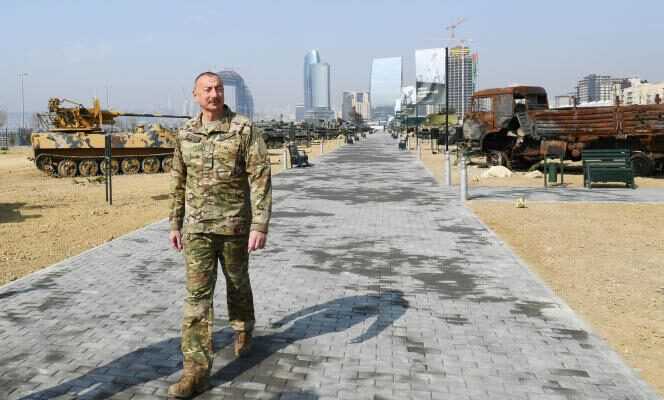An upsurge in military incidents on the border between Armenia and Azerbaijan calls into question the resumption of negotiations between the two countries. The retention in power of Armenian Prime Minister Nikol Pachinian, following early parliamentary elections in June, had nevertheless reassured Baku. The Azerbaijani authorities feared the return to power of an opposition threatening to tear up the tripartite declaration of November 9, 2020, which ended 44 days of war. The document was signed by Nikol Pashinian, as well as Azerbaijani President Ilham Aliev and Russian President Vladimir Putin.
Newly, the latest clashes took place 50 kilometers south of the Armenian capital, Yerevan. Not in the contested region of Nagorno-Karabakh, but on the edge of Nakhichevan, an Azerbaijani exclave wedged between Armenia and Iran. An Armenian soldier was killed and an Azerbaijani soldier wounded on Wednesday (July 14th) in an exchange of fire. Friday, another clash took place in the same place, without causing any victim. Shots were also exchanged in recent days in the vicinity of Choucha (Shushi in Armenian), in the heart of Nagorno-Karabakh, under the noses of the 2,000 Russian peacekeepers deployed in the area. For each incident, the two enemy camps reject the responsibility.
The Turkish-Russian Peace Monitoring Center, established in January 2021 to prevent such incidents, has not reacted. A silence “Significant, which can be explained by the lack of consensus between the representatives of Russia and Turkey”, points out political science expert Shahin Jafarli of the Baku Research Institute. This wobbly situation results, according to him, from the drafting “In a very Russian spirit” of the tripartite agreement: “A time bomb, because it allows contradictory interpretations”. According to article 1, the enemy forces retain the positions acquired at the time of signature. But, article 4 states that “The Russian Federation peacekeeping contingent is deployed in parallel with the withdrawal of the Armenian armed forces. “ A withdrawal that has never been made, to the chagrin of Baku. Shahin Jafarli therefore interprets incidents at the border as “A muscular policy of the Azerbaijani state, which by maintaining the pressure on the other camp, tries to dictate its conditions”.
You have 63.07% of this article to read. The rest is for subscribers only.
